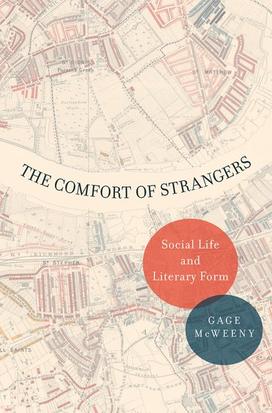
The book: The Comfort of Strangers: Social Life and Literary Form (Oxford University Press) argues for a new perspective on the portrayal of the “society of strangers” that emerged in Victorian literature and modern social thought in the 19th century. Gage McWeeny *03 draws from an array of literature to reexamine the role of strangers in Victorian novels, a theme that has long been overlooked. He explains that the strangers in these novels are not alienating and fearsome figures as often thought, but a transformative part of everyday life. The Comfort of Strangers uses literature and sociology to open up the classics of the 19th century to new interpretation.

Opening lines: “In his 1888 essay ‘London,’ Henry James confesses himself smitten, although by nobody in particular. Instead, it seems James is losing his heart to the whole city of London. Describing lulls in ‘the Season’ when the city’s fashionable residents decamp for country homes, ‘when everyone he knows is out of town,’ James discovers that he finds London oddly vivified, even repopulated by its seeming desertion—a city less barren than bustling. In these regular periods of low social tide, with friends and acquaintances far removed from the precincts of the city, Jame discovers unexpectedly that 'the exhilarating sense of the presence of everyone he doesn't know becomes so much the deeper' ”
Reviews: Amanda Claybaugh, professor at Harvard University, says, “A dazzling achievement. Gage McWeeny captures strangers in all their elusiveness, and, in doing so, renders the most familiar works of the Victorian period newly — startlingly — strange.”











0 Responses